Almost 30 young girls from the Midstate got an up-close taste of computer coding recently when a dedicated group of Middle Tennessee State University students, faculty and staff offered their technical expertise at a hands-on, daylong camp on campus.
The Django Girls Murfreesboro’s “Code Like a Girl” coding camp was a partnership between MTSU’s student chapter of the Association of Information Systems and the Department of Information System and Analytics within the Jennings A. Jones College of Business.
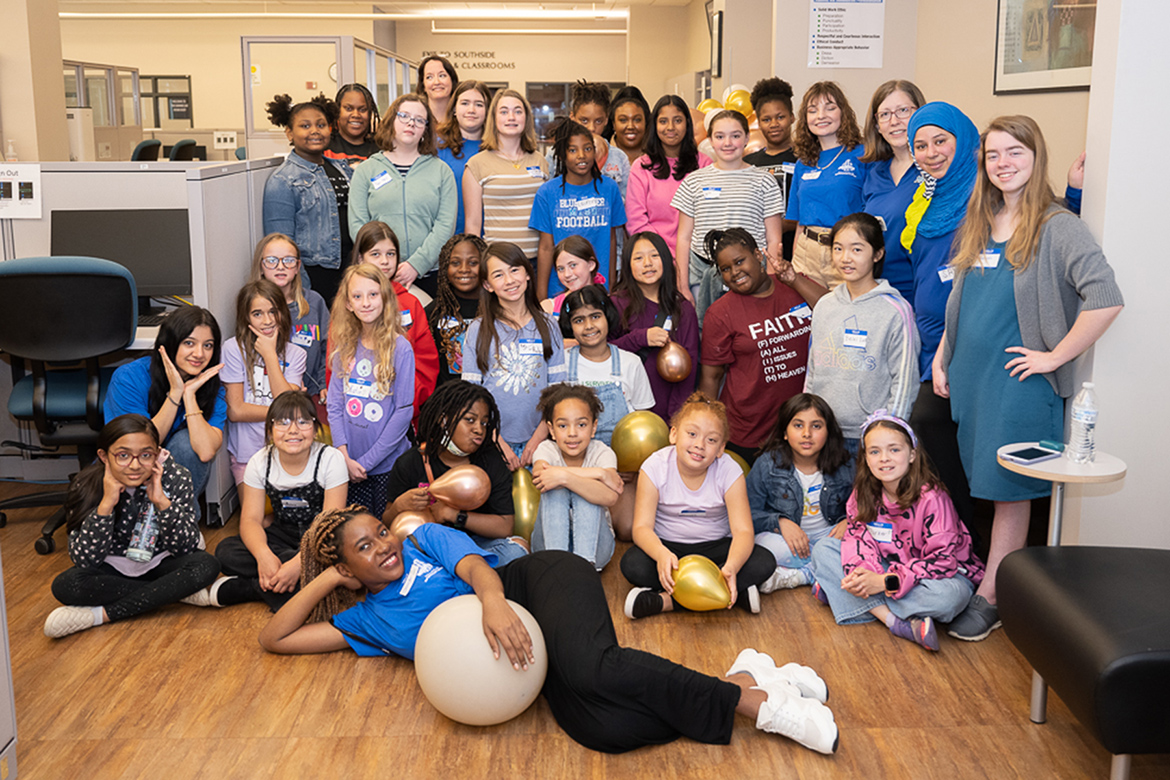
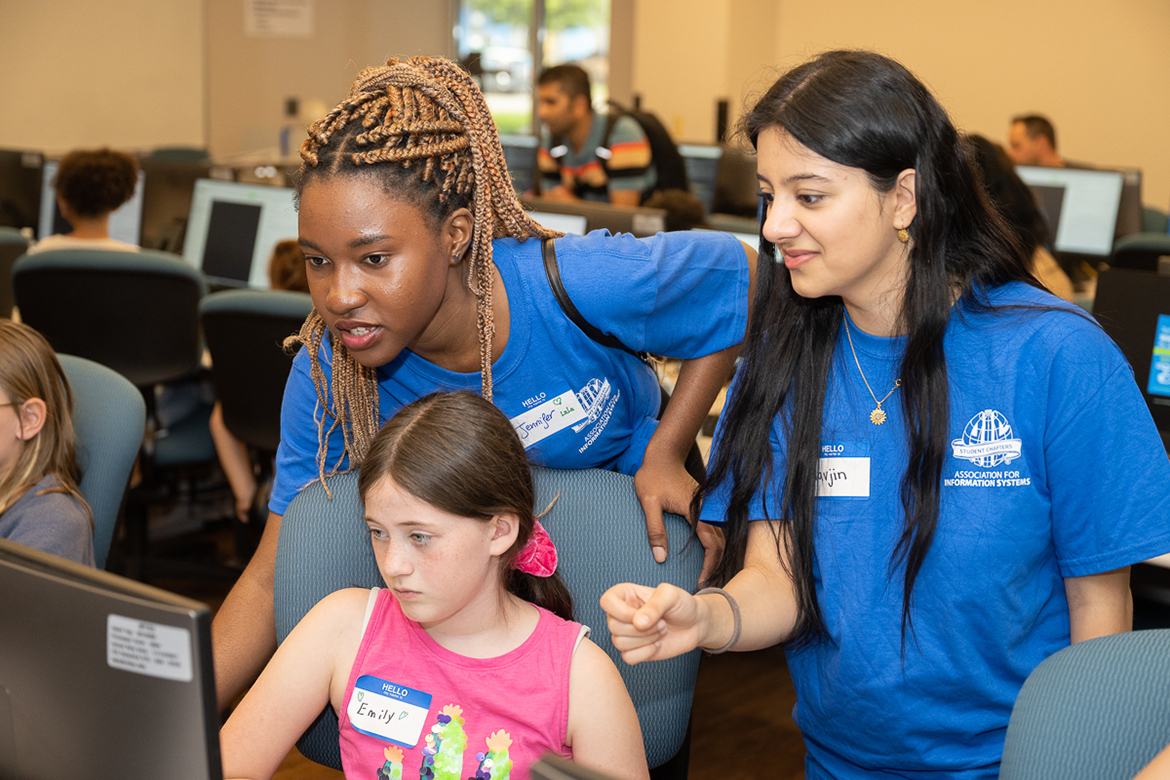
Held in mid-April in the Business and Aerospace Building, the free camp is the brainchild of the nonprofit Django Girls, a volunteer organization with affiliates all over the world that seeks to “inspire women to fall in love with programming” by hosting workshops that utilize the popular Django and Python web platforms.
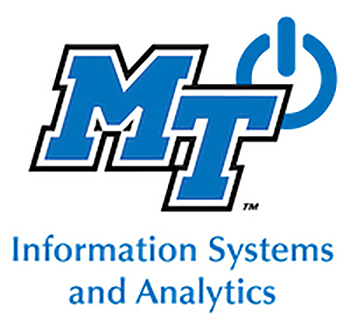
The MTSU camp targeted young girls from 8 to 16 years to familiarize them with coding and hopefully pique their interest early in pursuing a career in a technical field such as computer programming. No prior coding experience was required.
“The main goal (was) that we wanted to build them a foundation to take home. We wanted them to feel comfortable when they get home to open up the code again and jump back into it,” said freshman information systems major and Django Girls Murfreesboro camp instructor and coach Sydney Panak of Murfreesboro. “And I think we accomplished that goal, because by the end there were kids who were like, ‘I’m going to go home and teach this to my dad!’”
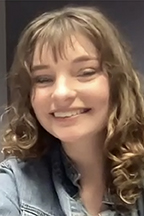
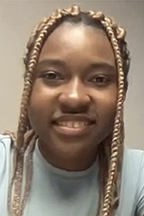
Django Girls Murfreesboro is organized by MTSU information systems assistant professors Michael Erskine and Stephanie Totty and information systems major and AIS Student Chapter President Rebecca Jones of Kingsport, Tennessee, with the support of the AIS student chapter, Department of Information System and Analytics and Jones College of Business.

MTSU junior information systems major Jennifer Nanmejo, a native of the central African nation of Gabon, joined Panak among the camp’s six student coaches. Most of the 29 MTSU campers were in the 8- to 10-year-old range, they said, posing somewhat of a challenge since typing isn’t a skill yet acquired for future coders who are so young.
But although time didn’t allow the instructors to help the campers complete the website, the daylong event still proved successful by providing them with foundational tools to explore the world of coding at a deeper level once they left the Blue Raider campus.
For example, Nanmejo, who works in the James E. Walker Library, said her supervisor, whose daughter was one of the campers, emailed her afterward because his daughter was having trouble finding the correct website so she could show him what she learned that day. But she eventually figured it out.
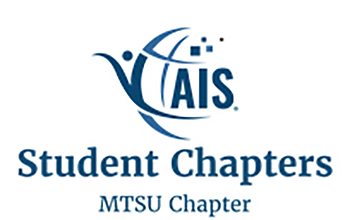
“It just shows that she was really eager to show her father how she did coding … and I think we planted a seed in those girls to go and continue searching about how to do coding,” Nanmejo said. “I think that was the main goal.”
Panak added that the coaches guided the campers without doing the work for them.
“We didn’t want to take charge … because we can do it so fast,” she said. “They need to struggle through it to get to that point where they say, ‘Oh, I can do this.’ To come to that breaking point and then overcome it. Some of them did!”
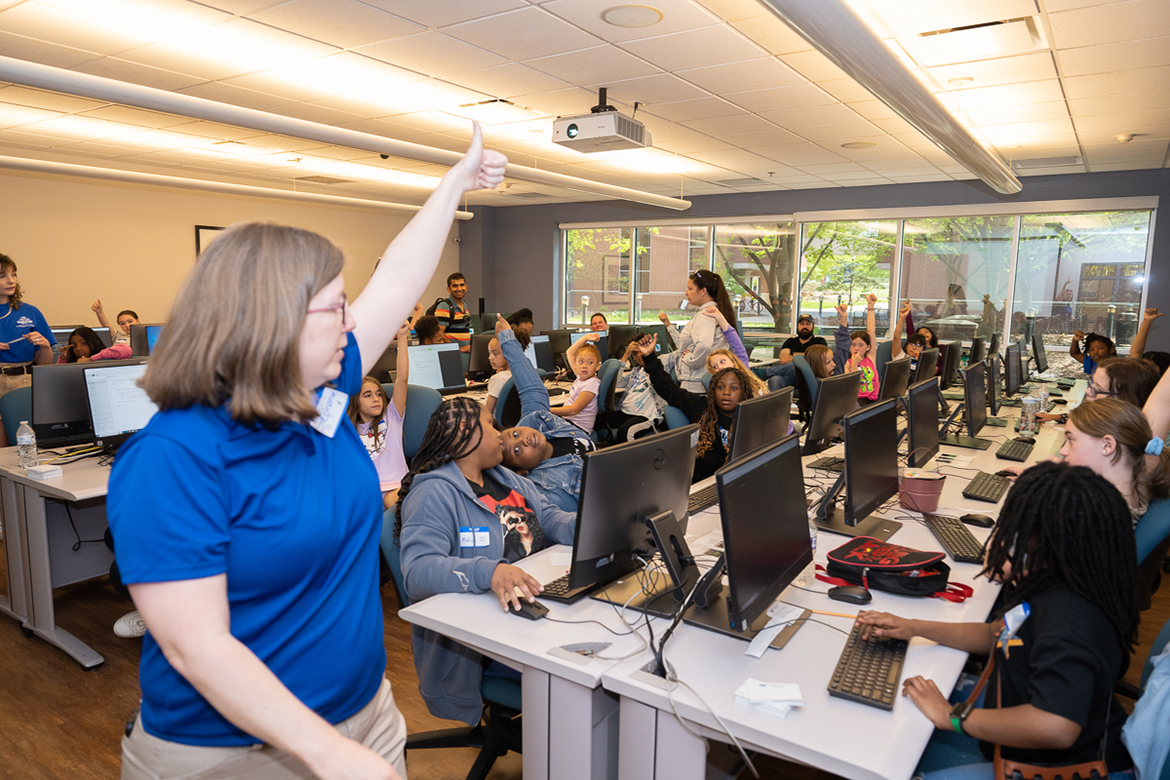
‘You can apply your creativity’
Erskine, who came to MTSU in 2017, serves as the student chapter’s faculty advisor and is a member of the AIS Student Chapter Advisory Board, which oversees 72 student chapters around the world, most located in the U.S.
He said students involved in the chapters get a jumpstart on professional development and preparing themselves for the workforce through resources such as resume preparation, mock interviews and networking with industry leaders.
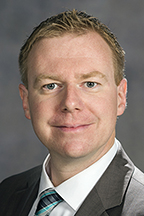
“Another piece is to encourage them to do community outreach,” Erskine said of AIS student chapters. “Do some sort of social activity. It can be related to information systems, but it doesn’t have to be. … Also, it gives them access to activities like the Student Leadership Conference.”
The AIS leadership conference features a full day of various sessions run by students for students, helping students enhance their skills in other areas such as event planning. MTSU had success at the most recent conference this spring at the University of Miami, with one of the university’s three student-led teams capturing first place in the PayCargo Supply Chain Logistics Case Study Competition.
MTSU typically averages about 80 AIS student chapter members each year, with various levels of involvement, Erskine said, and accepts students from any discipline across the university who are interested, not just information system majors.
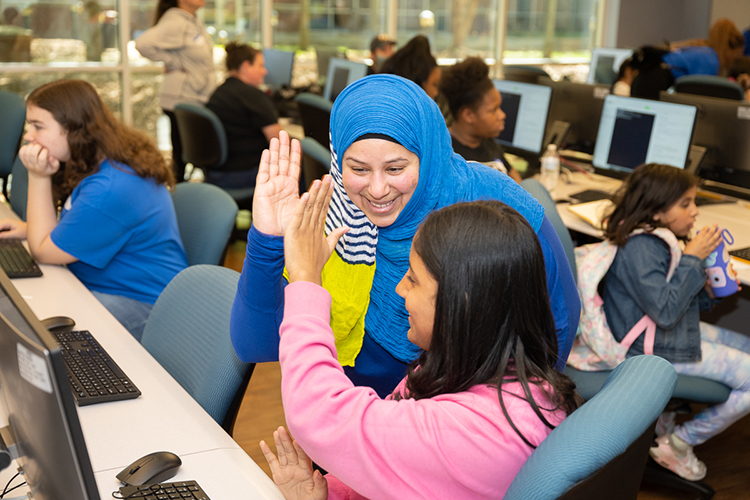
At the recent coding camp, in addition to Nanmejo and Panak, other student coaches included Havjin Barkhan of Nolensville, Tennessee, Savannah Conder of Franklin, Tennessee, Alexis Wiley of Spring Hill, Tennessee, and Mark Darling, a Bahamas native.
Jones College of Business faculty and staff support included Totty, fellow assistant professor and camp coach Sam Zaza, another strong advocate for diversity and inclusion across the technology workforce, Amie Donahue, an academic advisor, Carlos Coronel, director of the Jones College of Business IT Resources, and Erskine.
Erskine said the goal of Django Girls “is to get young girls to experience coding in a very welcoming atmosphere. The workshops are generally led by women or allies of young women. … They gather, they get to know each other, and they see that coding doesn’t have to be something that’s scary. You can apply your creativity.”
Camp participants were at one point asked to go through the design process and offer up ideas for new apps, with one suggestion being the creation of an app “around positivity.”
“They were so nice … and now we’re giving them the tools and showing them that if you like that idea, you can actually create that yourself,” he said. “That’s our goal, to empower them and show that they can take their creative ideas and apply them in this technical setting.”
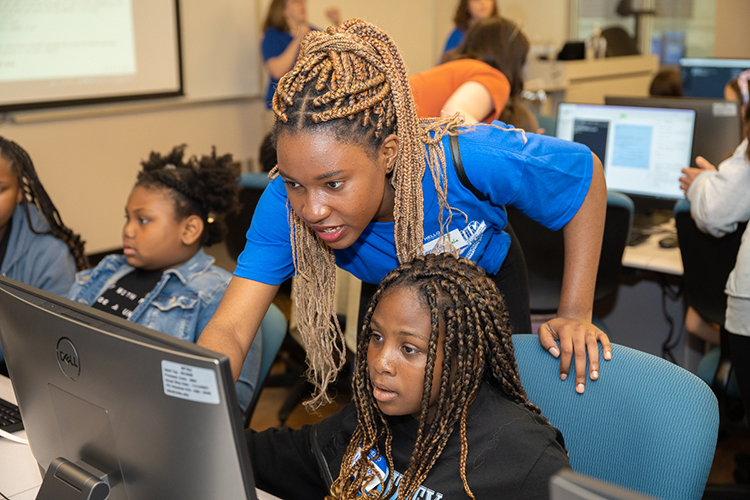
‘Jobs that we haven’t even thought about yet’
Both Panak and Nanmejo noted the importance of getting girls interested at an early age so that the coding profession reflects the diversity of the wider society, with Nanmejo pointing to the patriarchal nature of her home country that doesn’t really encourage young girls and young women to pursue a profession that is traditionally dominated by men.
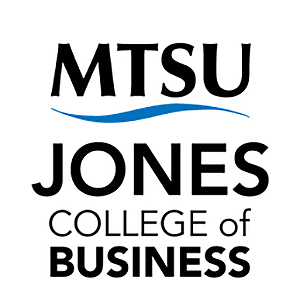
Both students also said it was more or less “luck” that got them exposed to information systems and analytics, but both expressed excitement about their professional prospects upon graduation. Information systems majors graduating with a Bachelor of Business Administration degree have an average starting salary of $65,000, with graduates pursuing career paths such as systems analyst, database manager, app developer and others across a wide variety of businesses and industries.
Erskine describes information systems and analytics as “a bridge” between business and technology. With technology continuing to advance and emerging areas such as artificial intelligence reshaping how the workplace functions, degrees like information systems will grow in demand, he said.
And while some observers are concerned that AI will cost jobs by replacing people in certain sectors of the economy, Erskine pointed to the advent of GPS technology in the 1990s. While GPS certainly impacted the traditional mapping industry, the geospatial technology also opened up a host of new job opportunities and is now a multibillion-dollar a year industry.
“I see the same thing here, where people are like, ‘wow, this tool is going to replace jobs,’” he said. “But at the same time, I think it’s going to create a lot of jobs that we haven’t even thought about yet.”
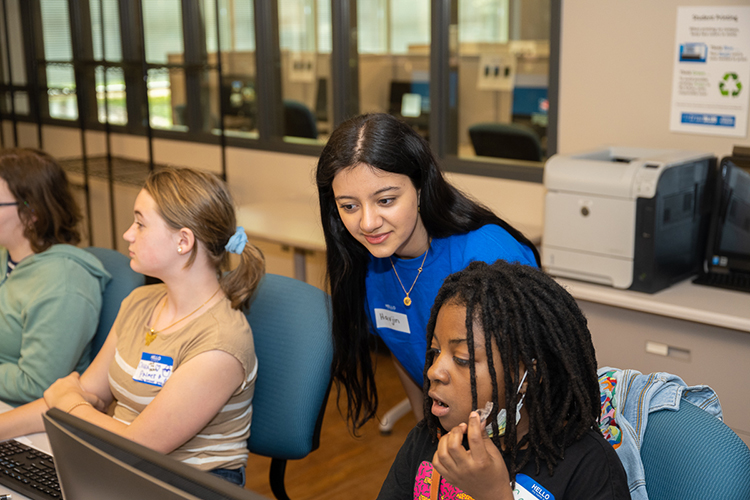
Co-presidents look to increase involvement
Panak praised Erskine for his guidance of the chapter and providing opportunities for students such as the recent AIS Student Leadership Conference in Miami.
Panak and Nanmejo will serve as co-presidents of the AIS chapter starting this fall and hope to increase the engagement by hosting more events, such as tabling at the CUSTOMS new student orientations this summer and networking with other student organizations on campus.
“It’s honestly been the best part of my freshman year. I’ve loved every single minute of it,” Panak said of her participation in the chapter. “Me and Jennifer are on a cybersecurity team together and we got to go to Florida to compete. We met so many wonderful students and peers, and also people who are in the industry and in the jobs we want to have one day. I’ve never had an experience like it.”
Said Nanmejo: “It’s a really different experience. To be honest, when I came to America, I had a different perspective of Americans and how to (act) around them. … I was really surprised that they were so welcoming … and it’s so diverse. I was really happy.”
For more information about MTSU’s Department of Information System and Analytics, visit www.mtsu.edu/isa.
— Jimmy Hart (Jimmy.Hart@mtsu.edu)

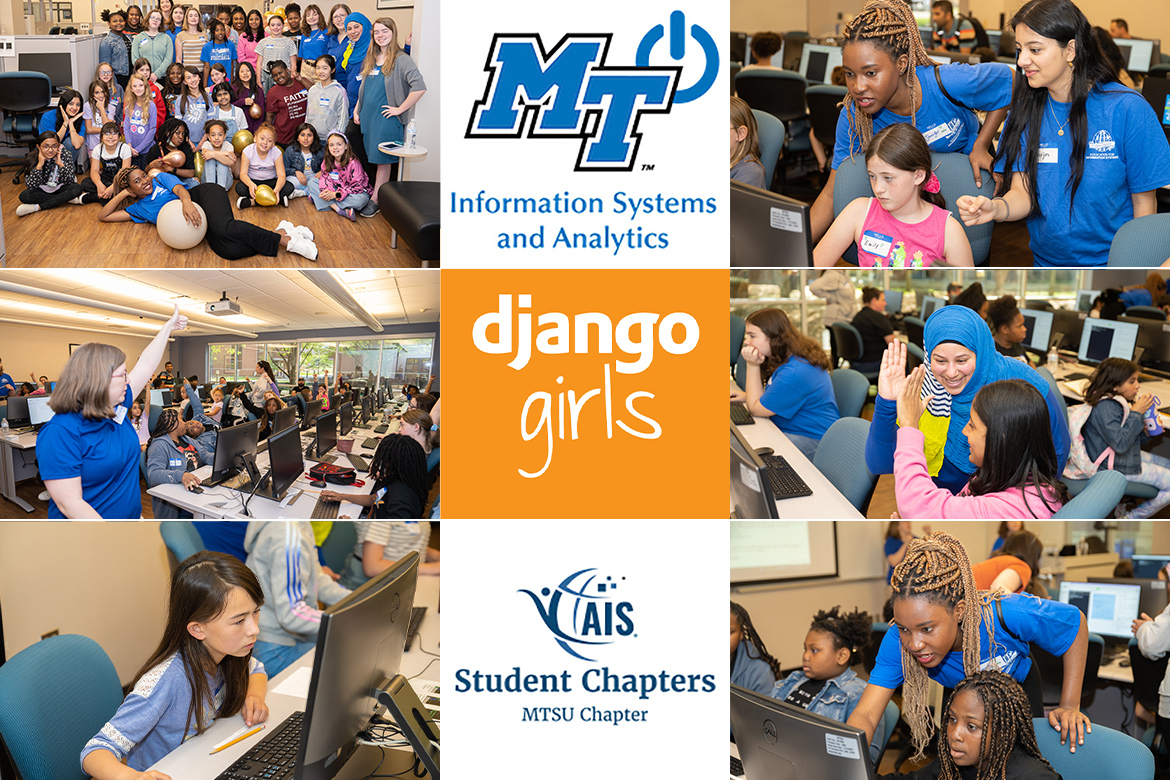
COMMENTS ARE OFF THIS POST